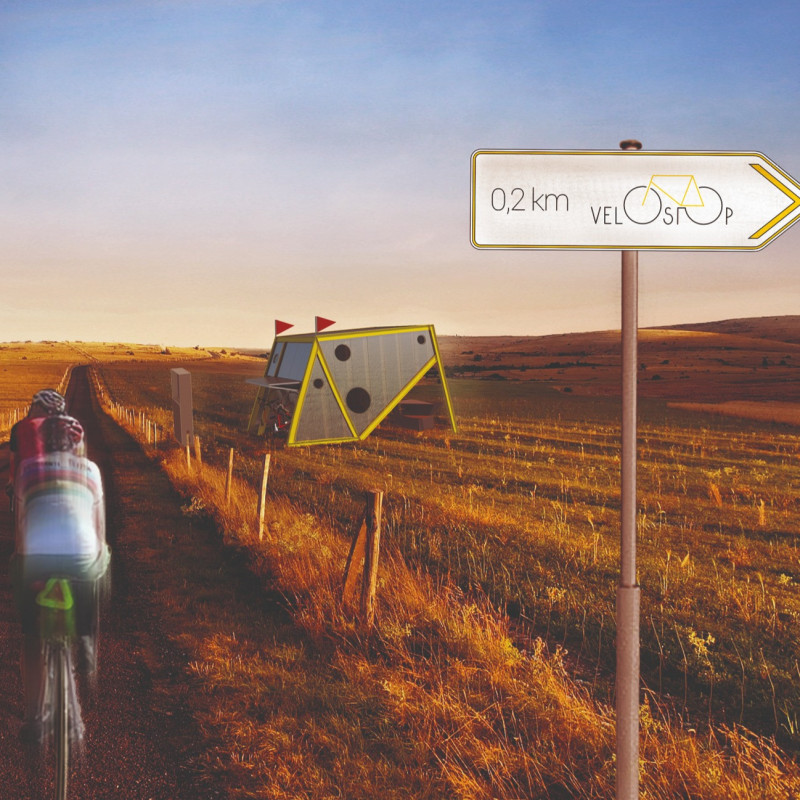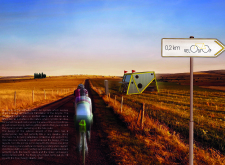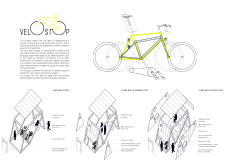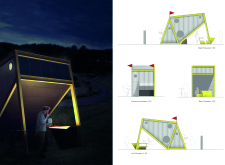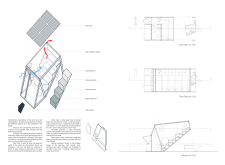5 key facts about this project
The Velo Stop serves as a practical space designed for cyclists, situated in scenic areas like riversides. It offers a place where riders can pause their journeys, refresh, and recharge. The overall design is inspired by the structure of a bicycle, transforming its essential elements into a welcoming and functional shelter.
Conceptual Framework
The design concept is grounded in the idea of breaking down a bicycle into its basic components. Two bicycle frames come together to form a protective structure around areas meant for relaxation and social interaction. This conceptual approach reflects the cycling experience while contributing to the building's visual identity.
Design Variants
Different configurations are available to meet diverse requirements. The basic Bike Rest Stop provides essential services. The Bike Rest & Shower Stop adds important hygiene facilities. The most extensive option, the Bike Rest & Sleep Stop, includes sleeping areas that offer privacy while still promoting a sense of community. Each design variation addresses the needs of cyclists effectively.
Sustainability Features
Sustainability is a core theme. The cabin is designed to operate independently, especially in its more advanced version that includes solar panels for energy. Water management features, such as systems for collecting rainwater and managing waste, help reduce the impact on the environment. This focus on eco-friendly operations aligns with the values of those who cycle.
Material Selection
Cold-formed steel is used for the cabin’s main structure. This choice guarantees a lightweight yet sturdy build, suitable for outdoor conditions. The outside is covered with aluminum plates, chosen for their durability. These materials support the modular design and lend a contemporary look, allowing the Velo Stop to fit comfortably within various natural settings.
Strategically placed openings allow for natural air circulation, improving comfort and air quality inside. The layout encourages a connection between those using the space and the surrounding environment. Each feature reflects a commitment to serving cyclists while promoting an appreciation for nature and an active lifestyle.


